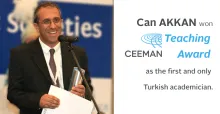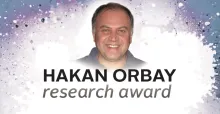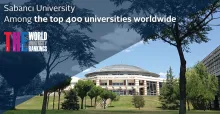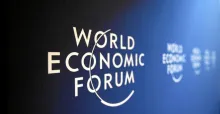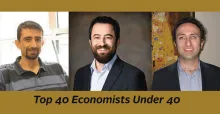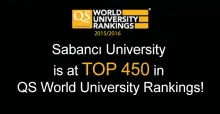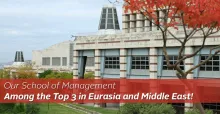09/10/2015
Sabancı University School of Management faculty member Can Akkan won the CEEMAN Teaching Award given to one person every year since 2010 to recognize outstanding individuals. As the first and only Turkish faculty member to win this recognition, Can Akkan received his award at the CEEMAN Conference held in Almaty, Kazakhstan on September 25, 2015.

The award is given to an original innovative teaching process or methodology which has been already used, has yielded special benefits, and has potential transferability to other CEEMAN institutions. The judges consider these methodologies with a special eye for how it is especially relevant to the needs of students and/or executives, and how the achievement contributes to the institution’s overall vision and strategy. Other factors in the selection are a record of the nominee's recent teaching evaluations and how these compare to the averages in the institution or department, and the assessments of the nominee's dean in the letter of nomination. Can Akkan was chosen for this award for developing computer-assisted active learning methodologies for the MGMT201 and the following MGMT203 courses, disseminating this methodology among other faculty members in the university, and implementing this methodology in MBA and Executive MBA courses as well as trainings provided by Sabancı University Executive Development Unit EDU.
Speaking on the award, Can Akkan said “CEEMAN is an institution that aims to improve management education in Central and Eastern Europe. The objective of the awards is to increase the prominence of individuals serving this mission and to disseminate innovative education to other schools in the region. Having made significant efforts to implement an active learning approach that is student-centered and ensures more participation and better learning in courses since I started at Sabancı, I am delighted that my work has been recognized outside our university as well."

Sabancı University School of Management Dean Füsun Ülengin said, “The School of Management is composed of extraordinary faculty members who are aware that research and teaching must have equal weights in our quest to become one of the top 40 business schools in the world within the next five years. I congratulate Can Akkan for winning the CEEMAN Teaching Award as a solid sign that we are on the right path, and I am proud of his achievement."





